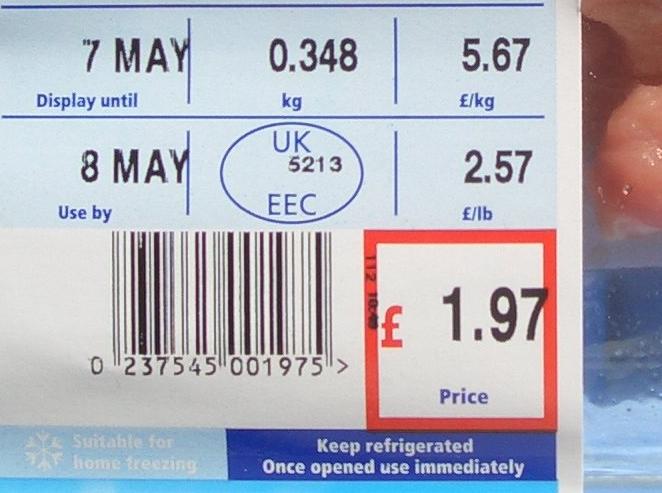
Philippa Skett, intern at the Society of Biology, discusses food waste in advance of our joint event with Global Food Security on 23 September
A well-known, rather decadent bakery brand had several outlets that are littered across the city. Their bread is of a high quality, it is freshly baked each day, but after closing bin bags full of surplus produce is discarded on the street night after night.
I know students who would prod the bin bags with their feet on the way back home from late nights at the library, and when they find bags full of perfectly fine bread, they would take them home and happily feast on them for several days. They got a free meal and inadvertently reduced potentially unnecessary landfill content.
A few bin bags of bread a night pales in comparison to larger supermarkets that are estimated to waste around 300,000 tonnes of food in the UK each year. Only Sainsbury’s were open enough to admit that they alone waste 40,000 a year. Although none of their waste ends up in a landfill, it still highlights the excess supermarkets process annually.
We as consumers are not perfect either. It is estimated that in the UK alone, around 7.2 million tonnes of waste comes straight from our homes- which has a value of about £12 billion. One estimate equates this to around £680 for each average UK family.
This is due to lots of reasons: people not considering leftovers as future meal options, overbuying in the supermarket, or incorrectly understanding dates put on packaged food.

Unclear labelling or consumer uncertainty can lead to people throwing out food when it is still perfectly safe to eat
Even so, though consumers are wasting more overall than supermarkets, it can be difficult to see just where the blame truly lies.
Supermarkets know that we as customers prefer to browse through well-stocked shops so would rather have surplus on the shelves and people at the tills than responsibly managing their provisions.
They also know we have high expectations of the produce we will part with our money for, so will discard products that has got damaged during transit, even though their food content remains unchanged. If they promise baked goods are fresh out of their oven each day they will end up discarding that perfectly edible bread and pastry goods at the end of the night.

A shopper’s dream or resource management’s worst nightmare?
When it comes to food waste, placing the blame on the consumer or the supermarket is no straightforward matter, but an alteration in mindsets wouldn’t do either party any harm. Could supermarkets challenge the government on its stringent laws about dates and quality controls on food, ensuring more can still safely be sold on shelves then wasted?
Or should we act more like the scrounging students in London? Prodding bin bags seems a bit of a deplorable habit, so I doubt people will start flocking to pick through trash, but adapting their thrifty state of mind could work wonders. Seeing food not as immediate waste but using our head to take full advantage of the food we have could save both the environment and the money in our pockets too.
The Society of Biology is running a debate on this so come and have your say on the topic too.


Hey,
Thought you might like my video ‘Re(f)use’ on freeganism that I made recently. It’s for a competition and I have until December 19th to get as many views as possible – every view gives me a vote. So, if you do like it, and could post about it, I’d really appreciate it!